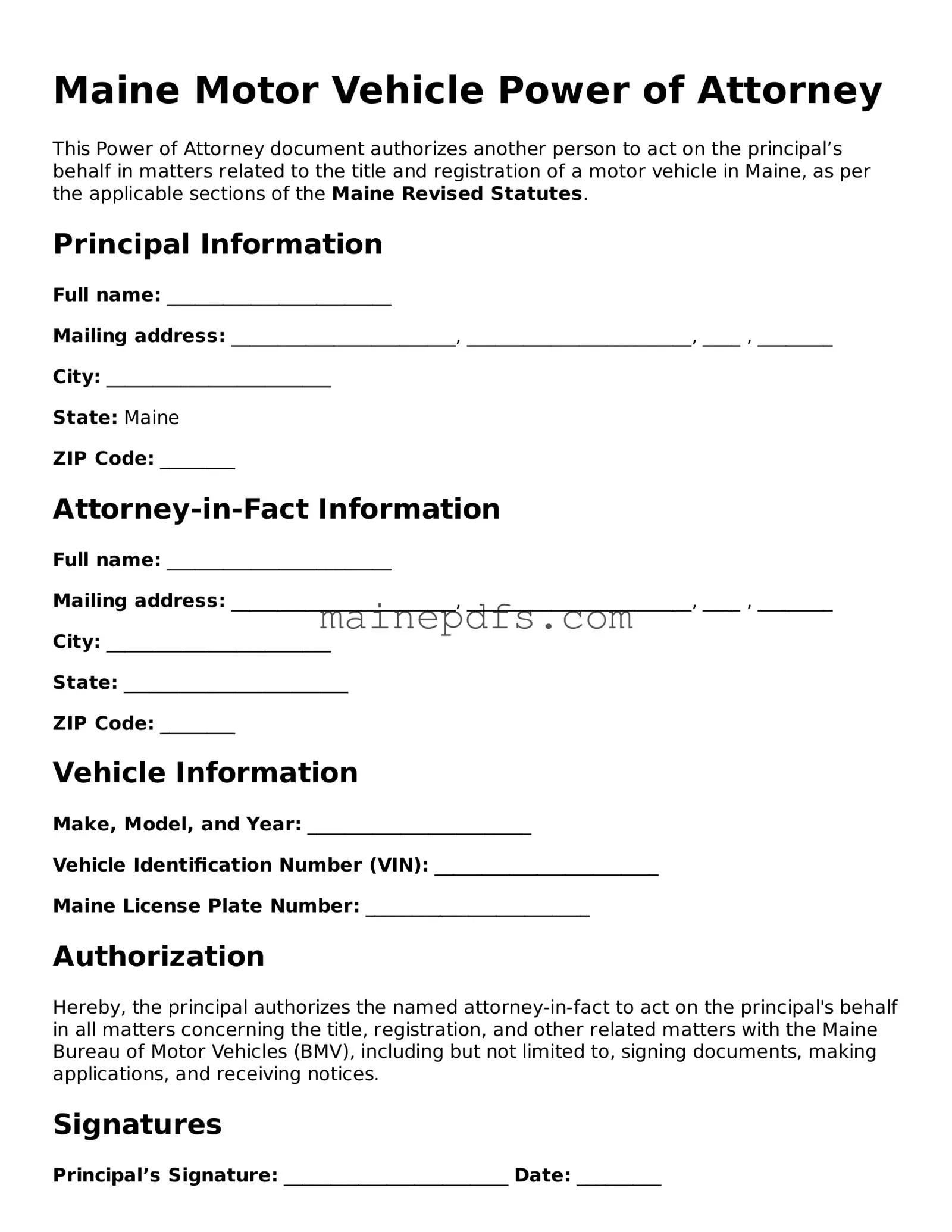Attorney-Approved Maine Motor Vehicle Power of Attorney Template
The Maine Motor Vehicle Power of Attorney form is a legal document that allows an individual to grant another person the authority to handle matters related to the title, registration, and other specified transactions for a motor vehicle on their behalf. This form is crucial for those who need representation due to absence, disability, or convenience reasons. Ensure your vehicle matters are handled properly by filling out the Maine Motor Vehicle Power of Attorney form by clicking the button below.
Make My Document Online

Attorney-Approved Maine Motor Vehicle Power of Attorney Template
Make My Document Online

Make My Document Online
or
Click for PDF Form
A few steps left to finish this form
Finish Motor Vehicle Power of Attorney online — no paper, no scanner needed.